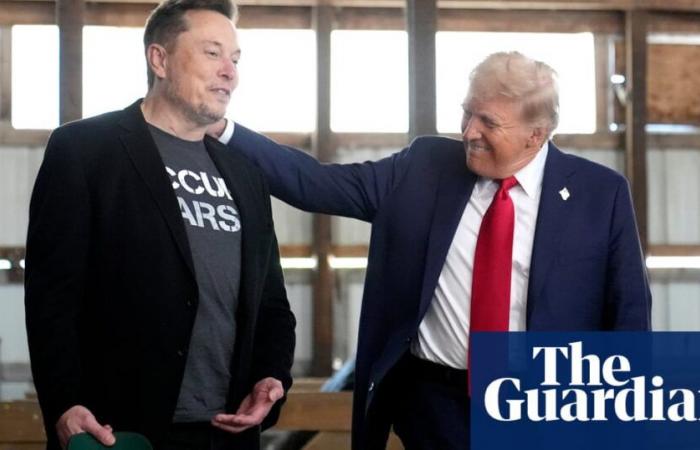
Allies and aides to Donald Trump should be increasingly concerned by Elon Musk’s proximity to and influence on the US president-elect, the Yale historian and bestselling author Timothy Snyder said.
“Trump is a little guy, and Musk is a big guy when it actually comes to having money,” Snyder said. “And I think if you were a friend of Trump, you would be worried.”
The author of bestsellers including On Tyranny (2017) and On Freedom (2024) was speaking to the Guardian about issues including his work in Ukraine, where he has teamed up with the Star Wars actor Mark Hamill to raise funds to buy robots to clear landmines laid by Russian invaders.
But as Trump prepares to take power in Washington, and promises new policy on US support for Ukraine most expect to heavily favor Vladimir Putin and Russia, Snyder also considered what the coming Trump administration may mean closer to home.
Snyder expects that Trump’s soon-to-be home, the White House, will be a stage for uncomfortable and damaging discord between the president-elect and his most powerful ally, the world’s richest man.
“I think we overestimate Trump and we underestimate Musk,” Snyder said. “People can’t help but think that Trump has money, but he doesn’t. He’s never really had money. He’s never even really claimed to have money. His whole notion is that you have to believe that he has money. But he’s never been able to pay his own debts. He’s never been able to finance his own campaigns.
“Musk, with an amount of money that was meaningless to him, was able to finance Trump’s campaign, essentially.”
As owner of businesses including Tesla, SpaceX and X (the social media platform formerly known as Twitter), Musk poured millions of dollars into supporting Trump in his presidential election campaign against the Democratic nominee, the current vice-president, Kamala Harris. Musk was widely reported to have been a key influence in Trump naming the Ohio senator JD Vance as his vice-presidential pick.
Since Trump’s victory in November, from Mar-a-Lago in Florida to Notre Dame in Paris, Musk has been constantly at Trump’s side, earning the satirical nickname “first buddy” but also an appointment with the biotech investor Vivek Ramaswamy to jointly head the “department of government efficiency”, or “Doge”, a group tasked with meeting Trump’s wildly ambitious campaign promise of slashing trillions from federal spending.
Considering instances of Musk’s apparent influence over Trump as the president-elect has struggled to control congressional Republicans – an unruly party already split on how to continue funding the government they also want to defund – Snyder said: “All the threats that Trump is now going to issue – ‘I’m going to primary people, I’m going to sue people’ – Musk is going to pay for that, not Trump. And when Trump needs money for anything, he’s going to be asking Musk.
“Unless Trump breaks it off right now, he’s going to be in this kind of dependent relationship for the rest of the way, because you get used to people giving you money … and I think if you were a friend of Trump, you would be worried.”
after newsletter promotion
Trump’s view of Russia has been a controversial subject ever since he entered presidential politics in 2015; won the White House in 2016 with Russian interference on his behalf; spent two years having his links to Moscow investigated by the special counsel Robert Mueller; and was widely criticized in office for appearing to defer to Vladimir Putin.
In light of such concerns, Snyder – whose 2018 book The Road to Unfreedom was in large part about Trump and Russia – discussed a name for the incoming, second Trump administration that he recently coined.
“So I thought about this dependency position,” Snyder said. “I was going to call it Muskotrumpovia, because I think Musk is a more important person, but Trumpomuskovia had a nicer ring to it.
“And also, I wanted Muskovia because I wanted the idea of Russia to be there in the background, because a lot of smart Russia hands are saying this all the time: this is kind of like the 1990s in Russia. You have the doddering, rich-but-not-very-rich president [Boris Yeltsin]surrounded by more youthful, more active, ambitious oligarchs. That’s the kind of scenario [America is] in.”





